Marknadsnyheter
Simris Alg interim report January-September 2022
Q3, JULY-SEPTEMBER 2022
- Net revenue decreased by 84% to SEK 316k (1 971k).
- Personnel & other external costs decreased by 21% to SEK -4 629k (-5 849k).
- EBITDA improved by 37% to SEK -4 471k (-7 148k).
- EBIT/ Operating result improved by 43% to SEK -6 115k (-10 701k).
JANUARY -SEPTEMBER 2022
- Net revenue increased by 19% to SEK 3 762k (3 160k).
- Personnel & other external costs decreased by 33% to SEK -12 403k (-18 404k).
- EBITDA improved by 48% to SEK -11 941k (-19 939).
- EBIT/ Operating result improved by 40% to SEK -15 026k (-25 021k).
KEY EVENTS ANNOUNCED IN Q3
- On July 20, 2022, Simris elected to terminate its arrangement with Mangold Fondkommission AB as Certified Advisor and for liquidity services. On the same day Simris appointed Amudova AB as its new Certified Advisor.
- Simris published a letter from CEO on Aug 4 August 2022.
- On 25th August 2022, The Brand Laboratories, a company associated with the Simris Chairman, Steven Schapera, provided a loan facility of up to €1m.
- Simris Alg completed its purchase of 100% of the shares in Cyano Biotech GmbH on 25 August 2022.
- As part of the Agreement to purchase 100% of the shares of Cyano Biotech, Simris completed a directed share issue to Dr Dan Enke and Dr Heike Enke on 7 September 2022.
KEY EVENTS AFTER Q3
- No significant events to report after the end of Q3.
CEO UPDATE
My objective for Q3 was to lay down a robust foundation for future sales revenue, and to complete the successful integration of Cyano Biotech GmbH, into the Simris structure. On the revenue front, the team has made great progress towards the December launch of our new Food Supplement products, improving the biosecurity of our production, and valorising additional extracts for B2B sales. In acquiring Cyano Biotech we have become pioneers in the field of Antibody Drug Conjugate (ADC)* medicines, providing drug developers with an entirely unique proposition for a next generation of ADC payloads produced by cyanobacteria. We now have our own R&D laboratories and hold broad patents covering a novel technology platform that gives us an accelerated entrance into the lucrative BioPharma space. I have a very clear view of where I want Simris to be in the next 5 years and am immensely proud that we are considerably closer to those objectives than we were just a few months ago when I began my appointment.
Generating sustainable sales revenue has been the biggest challenge for Simris throughout its history. This is why my top priority since joining in May, has been to build strong sales platforms for the short, medium, and long-term.
Towards the end of Q2, we initiated multiple projects aimed at building these platforms and much progress has been made during Q3. These projects are: (1) launching an improved range of microalgae-based food supplements; (2) enhancing the biosecurity and cultivation conditions of production to reliably increase product quality and yields; (3) identify and extract additional high-value compounds from our biomass as ingredients in B2C products or for sale to B2B customers.
I expect that our hard work will begin to show results in Q4, when we launch our new range of food supplements. The other projects will increasingly deliver revenue and margin throughout the first half of 2023.
Since acquiring Cyano Biotech in August, we have also invested considerable time to develop our understanding of their science and to build relationships with their target customers i.e., drug development companies. Importantly, these conversations are showing great promise.
FOOD SUPPLEMENT RELAUNCH:
Data from Amazon US confirms that more than 4m packs of Omega-3 are sold monthly from their marketplace. The potential for an attractively branded and reasonably priced algal Omega-3 is thus significant. Having studied trends in the existing market, the Team decided that a completely fresh approach was needed to unlock this potential.
The new concept is aimed both at converting those currently consuming Omega-3 from fish, to taking Omega-3 from algae, as well as winning over existing consumers of algal Omega-3.
Product: The capsules will contain twice as much EPA and DHA, and yet will be half the size of our historical product. This makes them much easier to swallow, an important factor for about 50% of US consumers and more than 60% of German consumers.**
Packaging: Capsules will be sold in a refill pouch, which is used to refill a Simris-branded storage jar. The storage jar is provided in a Starter Pack, along with two refill pouches. This approach minimises packaging inputs, facilitates low-cost shipping, reduces risk of breakage and is more environmentally responsible.
Price: By using less packaging we reduce direct packaging costs as well as indirect costs such as shipping and damages. This enables us to set a more accessible price, still with healthy margins, to drive volume sales.
Distribution: For the first time, Simris Omega-3 products can be sold into all major markets. In December we will begin selling directly to US consumers from Amazon US, and to Swedish consumers from our own web shop. The plan is to roll-out the range to new markets, with a focus on e-commerce and pharmacies in 2023.
BIOSECURITY & QUALITY:
Following with my appointment as CEO, I initiated a comprehensive risk review of Simris operations. As a result, it became clear that the single biggest production risk was biosecurity. During Q3 we engaged external consultants to conduct an independent audit of the company’s approach to biosecurity. Progress has already been made in updating our standard operating procedures (SOP’s), and in making the necessary investments in our production facility. These improvements reduce the risk of contamination as well as providing additional alerts when parameters such as temperature, pH, salinity etc are moving outside of the optimal range.
As expected, following an audit by LRQA at the end of October, Simris has once again been certified for the production and sale of food supplements under the criteria defined by Svensk Egenvård.
Over this winter we will conduct trials aimed at establishing the optimal conditions for (1) biomass growth and (2) production of Fucoxanthin. To be able to conduct these trials we have moved one of our smaller photobioreactors into a closed room where we can control growth conditions (light &, heat) more closely. Results from these trials will help us to increase yields in 2023 and give us vital insights into the future of our production under the GMP certification required for the production of pharmaceutical products.
VALORISED PRODUCTS:
Historically, Simris has either extracted only EPA from its biomass or sold biomass to customers for them to process and extract molecules of interest.
At the start of Q3 we changed our mindset and set ourselves the challenge to be able to extract and sell multiple high value molecules/ products from the same biomass. Over the past three months we have developed a process to produce an oleoresin extract rich in Fucoxanthin after already having extracted EPA oil using CO2.
Studies have demonstrated Fucoxanthin to offer potential health benefits for the prevention of chronic diseases, including cancer, obesity, diabetes mellitus, and liver disease. Fucoxanthin is therefore a high value molecule, already well known to us as it was the target molecule within the biomass Simris sold B2B during 2021 and in Q1 of this year.
This opens up the potential to create new consumer products containing Fucoxanthin and to sell a Fucoxanthin rich oil/ oleoresin to B2B customers. Further work is planned through Q4 and into Q1 of next year to (1) define additional Fucoxanthin products; (2) confirm their stability/ shelf-life and (3) establish further molecules of interest/ products that can be produced from the same biomass, for example novel ingredients for cosmetics.
CYANO BIOTECH & BIOPHARMA:
Following our acquisition of Cyano Biotech, I attended the world’s biggest Antibody Drug Conjugate* (ADC) conference at the start of September. Having talked with dozens of experts in the ADC field during and after this event, I am even more convinced that Simris will generate significant revenue from our ADC technology in the coming years.
Drug developers are looking for novel payloads that can be used to develop the next generation of cancer drugs. Whilst still in the pre-clinical phase, Simris now holds a library of cyanobacterial toxins which will provide a pipeline of novel ADC payloads. We also hold a broad patent covering the method by which our payloads are produced. The methodology offers significant potential for the modification of payloads to be both highly potent and highly specific in killing only cancer cells at extremely low concentrations. Achieving this will drastically improve the quality of life of cancer patients undergoing treatment.
Agreements between drug developers and companies offering payloads include up-front payments to license the technology towards a specific target, milestone payments and royalties. For payloads gaining regulatory approval, such agreements can be worth hundreds of millions of dollars.
With our newly acquired library of cyanobacterial strains and payload classes, and as the only company growing ready to conjugate ADC payloads, Simris is unique within the ADC field. Whilst it is still early days, I am encouraged by the interest we have already been able to generate and from the discussions we are currently engaged in with drug developers.
Through the acquisition of Cyano Biotech, Simris now has its own Research & Development (R&D) laboratories with an in-house R&D team, based in Berlin. As a result, we have cancelled our cooperation with the University of Anhalt, and this is estimated to save Sirmis around €100k a year.
The founders of Cyano Biotech are now our CSO’s. Dr Dan Enke is CSO for ADC Technology, and Dr Heike Enke is CSO for all non-ADC Technology.
SUMMARY:
Simris has made big steps towards profitability this year. Year to date Sales Revenues are up 19% and on a like for like basis, excluding one-time costs in 2021, EBIT is up 3.3MSEK. This has been achieved through tight cost control whilst building the future sales platforms.
I would like to take this opportunity to thank you for your continued support of Simirs as we take the steps that will lead us towards a profitable future.
The report is published on Simris Algs website:
https://simrisalg.se/sv/investerare/finansiella-rapporter/
For more information contact:
Julian Read
CEO Simris Alg AB
Email: julian.read@simris.com
Mobile: +46767888212
www.simrisalg.se
This information is information that Simris Alg AB is obliged to make public according to the EU’s market abuse regulation. This information was provided by the above contact person for publication on 2022-11-09 at 08:00 AM CEST.
ABOUT SIMRIS ALG AB (PUBL):
Simris Alg is a biologics company identifying high value, natural, biologically active compounds found in microalgae and cyanobacteria to extract for applications in skincare, nutrition, and biopharmaceuticals. The company sustainably grows microalgae and cyanobacteria at industrial scale within its photobioreactor facility whereby conditions are optimized for production of these high-value compounds.
Simris Alg’s shares are traded on the Nasdaq First North Growth Market with the short name SIMRIS and ISIN code SE0008091664. Certified Adviser is Amudova AB, telephone: 08-546 017 58, email: info@amudova.se.
Marknadsnyheter
Regeringen föreslår lättnader i byggkraven för studentbostäder
Regeringen har beslutat om en lagrådsremiss med förslag till lättnader i byggkraven för studentbostäder. Syftet är att öka möjligheterna till flexibilitet vid byggandet.
– På många studieorter är det svårt för studenter att hitta boende. Därför behöver byggregelverket förenklas. Syftet är att möjliggöra för fler studentbostäder genom sänkta byggkostnader och ökad flexibilitet, säger infrastruktur- och bostadsminister Andreas Carlson.
Förslaget innebär att det blir möjligt att göra undantag från kraven på tillgänglighet och användbarhet i en byggnad som innehåller studentbostäder. Undantagen ska kunna tillämpas vid både nyproduktion och vid ändring av en byggnad.
Det ska vara möjligt att göra undantag för högst 80 procent av studentbostäderna i ett byggprojekt. Minst 20 procent av studentbostäderna ska fortfarande uppfylla gällande krav på tillgänglighet och användbarhet för personer med nedsatt rörelse- eller orienteringsförmåga.
Lagändringen ger större flexibilitet vid byggande av studentbostäder och skapar fler tänkbara sätt att utforma planlösningar. Till exempel kan bostadsytan minskas och fler bostäder rymmas inom en given yta.
De föreslagna undantagen ska inte hindra personer med funktionsnedsättning att vara delaktiga i sociala sammanhang. En studentbostad som omfattas av undantagen ska kunna besökas av en person med nedsatt rörelse- eller orienteringsförmåga.
Regeringen breddar också definitionen av studentbostäder till att inkludera all vuxenutbildning för att göra det möjligt för fler kommuner att erbjuda studentbostäder.
Förslagen föreslås träda i kraft den 1 juli 2025.
Lagrådsremissen: Lättnader i byggkraven för studentbostäder – Regeringen.se
Presskontakt
Ebba Gustavsson
Pressekreterare hos infrastruktur- och bostadsminister Andreas Carlson
Telefon (växel) 08-405 10 00
Mobil 076-12 70 488
ebba.gustavsson@regeringskansliet.se
Marknadsnyheter
Bönor från egen kaffeskog, sump till jord – Viking Lines nya kaffe gör gott på många olika sätt
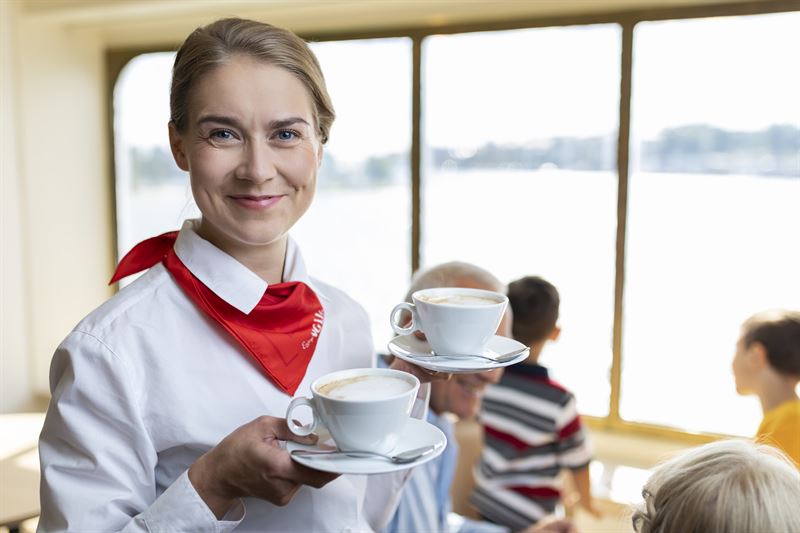

Viking Lines resenärer dricker varje år 8,5 miljoner koppar kaffe. Nu satsar rederiet på ett helt nytt kaffe som ger minskade klimatutsläpp och bättre levnadsvillkor för odlarna. Kaffet från Slow Forest odlas på rederiets egen odling i Laos utan kemiska gödningsmedel, handplockas och rostas därefter i Danmark.
Allt kaffe som serveras på Viking Lines fartyg är nu hållbart producerat Slow Forest-kaffe, odlat på rederiets 75 hektar stora odling på högplatåerna i Laos och rostat i Danmark. Kaffeplantorna odlas bland träd på återbeskogad mark, i stället för på traditionellt skövlade plantager. Viking Lines odling ligger i en kolsänka där målsättningen är att plantera 30 000 träd, vilket innebär nästan 400 träd per hektar. Kaffeskogen förbättrar också den lokala biologiska mångfalden i området.
Odlingen, bearbetningen och rostningen av kaffet hanteras av Slow Forest Coffee. För företaget är det viktigt att produktionskedjan är rättvis och transparent. Utöver miljöfördelarna erbjuder Slow Forest bättre lönevillkor och sjukersättning för byns odlare.
”Den traditionella kaffetillverkningens koldioxidavtryck är stort och merparten av intäkterna går till Europa i stället för produktionsländerna. Vi ville göra annorlunda. Våra kunder vill göra hållbara val, och nu kan de njuta av sitt kaffe med bättre samvete än någonsin tidigare,” berättar Viking Lines restaurangchef Janne Lindholm.
Bönorna till Slow Forest-kaffet får sakta mogna i skuggan av träden, utan kemiska gödningsmedel. De plockas också för hand, vilket avsevärt förbättrar kaffets kvalitet och smak. Viking Lines nya kaffe består till 100 procent av Arabica-bönor, med en balanserad syrlighet samt smak av nötter och choklad. Rostningsprofilen har skapats av den världsberömda danska rostningsmästaren Michael de Renouard.
”Vi valde en mörkrost till fartygets kaffe, vilket passar både finländarnas och svenskarnas nuvarande smakpreferenser gällande rostning. Finländarnas smak gällande kaffe har under de senaste åren utvecklats mot en mörkare rostning. Innan vi gjorde vårt slutgiltiga val testades det nya kaffet i Viking Cinderellas bufférestaurang och personalmässen – och båda testgrupperna gav toppbetyg. Då 8,5 miljoner koppar kaffe bryggs varje år kan inget lämnas åt slumpen!” säger Janne Lindholm.
Viking Lines hållbarhetsmål stannar inte vid produktionskedjan. Kaffesump från fartygen återvinns nämligen som råmaterial för trädgårdsjord. Detta minskar avsevärt användningen av jungfrulig torv vid tillverkningen av mylla.
”Vi har som mål att allt som tagits ombord på fartygen som är möjligt att återvinna ska återanvändas eller återvinnas. Det gäller inte bara kaffet utan även matavfall och till exempel textilier som tas ur bruk. Ett bra exempel på vårt livscykeltänkande är att frityrolja från fartygets restauranger blir till biobränsle för den finska sjöfartsindustrin,” säger Viking Lines hållbarhetschef Dani Lindberg.
Slow Forest Coffee – 5 fakta:
- Slow Forest Coffee är ett kaffeföretag som verkar i Laos, Vietnam och Indonesien i samarbete med över 500 lokala kaffeodlare.
- Företaget grundades år 2019 av Pinja Puustjärvi, driven av en vilja att skydda skogarna i Laos och stötta lokala odlare. Puustjärvi bodde som barn i Laos på grund av sin fars arbete.
- Kaffet odlas i restaurerade kaffeskogar, som binder stora mängder kol och ökar den biologiska mångfalden.
- Det är viktigt för företaget att produktionskedjan är ansvarsfull och transparent, samt att verksamheten gynnar både miljön och de lokala samhällena.
- Slow Forest Coffee betalar odlarna bättre ersättning än genomsnittet i Laos och erbjuder förmåner som underlättar deras liv: förskottsbetalningar, utbildning och möjligheten att låna pengar från en krisfond.
Mera infomation om Slow Forest Coffee här
Tilläggsinformation:
Janne Lindholm, restaurangchef
janne.lindholm@vikingline.com, tel. +358 400 744 806
Dani Lindberg, hållbarhetschef
dani.lindberg@vikingline.com, tel. +358 18 27 000
Johanna Boijer-Svahnström, informationsdirektör
johanna.boijer@vikingline.com, tel. +358 18 270 00
Christa Grönlund, informationschef
christa.gronlund@vikingline.com, tel. +358 9 123 51
Marknadsnyheter
“Vi behöver tillsammans enas om vettiga avtal, som sätter standard för branschen”
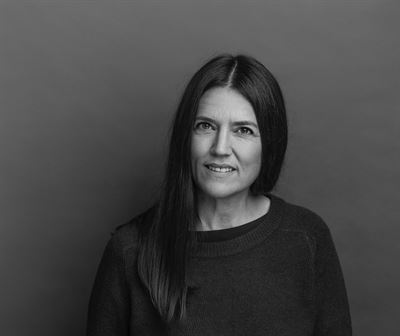
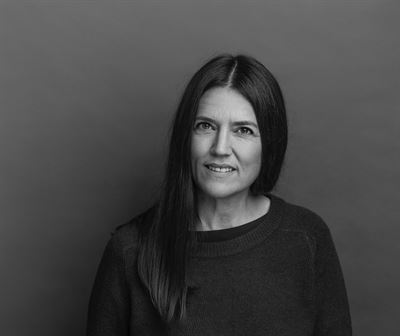
Sveriges Radios Kulturnytt gör just nu en mycket välkommen granskning av villkoren i musikbranschen. Igår lyftes artisten Siw Malmkvists situation med ett avtal som inte förnyats på över 60 år. Hennes situation är tyvärr långt ifrån unik. Musikerförbundet har länge uppmärksammat att majorbolagen fortsätter att betala extremt låga royaltynivåer till artister vars kontrakt skrevs på 1960-talet – en tid då digital streaming inte existerade.
– Jag kan intyga att artisterna som talar ut i P1 är långt ifrån ensamma om sin situation och vi uppmanar deras artistkollegor att gå ut med sitt tydliga stöd till de som vågar bryta tystnaden om oskäliga ersättningar, säger Musikerförbundets ordförande Karin Inde.
Musiker och artister skapar det värde som skivbolagen tjänar pengar på, men ändå ser vi gång på gång hur bolagen behåller stora delar av intäkterna. Att en av Sveriges mest folkkära artister, med en karriär som sträcker sig över decennier, fortfarande har en oskälig royalty är ett tydligt bevis på branschens obalans.
– Tystnadskulturen kring prissättning är enbart bra för bolagen. Både artister och musiker skulle verkligen tjäna på att dela med sig till varandra om hur betalningar och dealar verkligen ser ut. Förstås i trygga, egna rum. Det är bara bolagen som tjänar på att vi inte pratar med varandra om pengar, säger Karin Inde.
Stort tack till de modiga artister som ser till att lyfta problematiken! För att vi ska få till en i grunden mer rättvis musikbransch behöver de stora parterna i sammanhanget – skivbolagen, musikerna och artisterna – göra som de flesta andra svenska branscher lyckas med:
– Vi behöver tillsammans enas om vettiga och balanserade avtal, som sätter standard för branschen. Musikerförbundet är redo att göra vår del i arbetet för bättre villkor i musikbranschen, frågan är om skivbolagen är redo, säger Karin Inde.
Karin Inde
Förbundsordförande
karin.inde@musikerforbundet.se
+46 (0)704447228
Musikerförbundet är fackförbundet för professionella musiker och artister. Vi arbetar för förbättrade upphovsrättsliga och arbetsrättsliga villkor och för att våra medlemmar ska få en rättvis del av de värden de skapar i samhället.
-
Analys från DailyFX10 år ago
EUR/USD Flirts with Monthly Close Under 30 Year Trendline
-
Marknadsnyheter5 år ago
BrainCool AB (publ): erhåller bidrag (grant) om 0,9 MSEK från Vinnova för bolagets projekt inom behandling av covid-19 patienter med hög feber
-
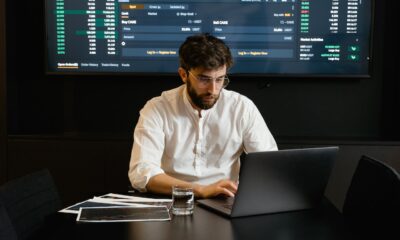
 Marknadsnyheter2 år ago
Marknadsnyheter2 år agoUpptäck de bästa verktygen för att analysera Bitcoin!
-
Analys från DailyFX12 år ago
Japanese Yen Breakout or Fakeout? ZAR/JPY May Provide the Answer
-

 Marknadsnyheter2 år ago
Marknadsnyheter2 år agoDärför föredrar svenska spelare att spela via mobiltelefonen
-
Analys från DailyFX12 år ago
Price & Time: Key Levels to Watch in the Aftermath of NFP
-
Analys från DailyFX8 år ago
Gold Prices Falter at Resistance: Is the Bullish Run Finished?
-
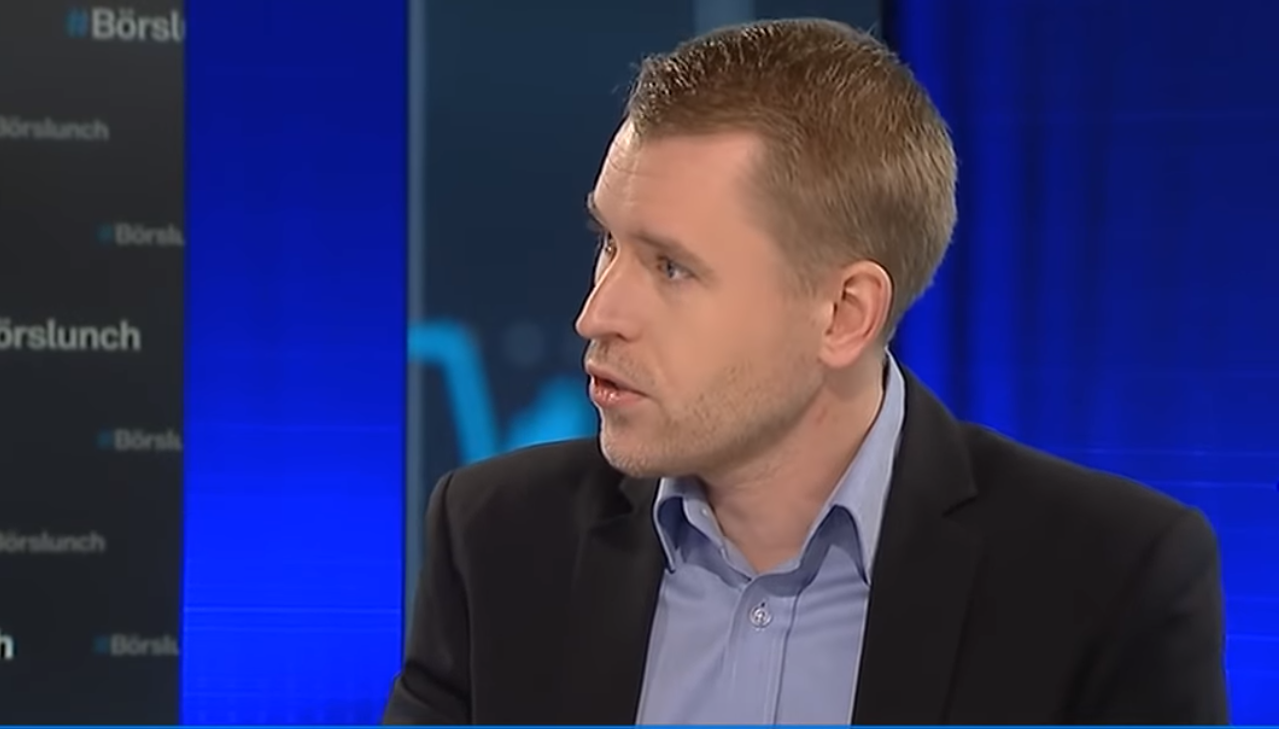
 Nyheter7 år ago
Nyheter7 år agoTeknisk analys med Martin Hallström och Nils Brobacke

